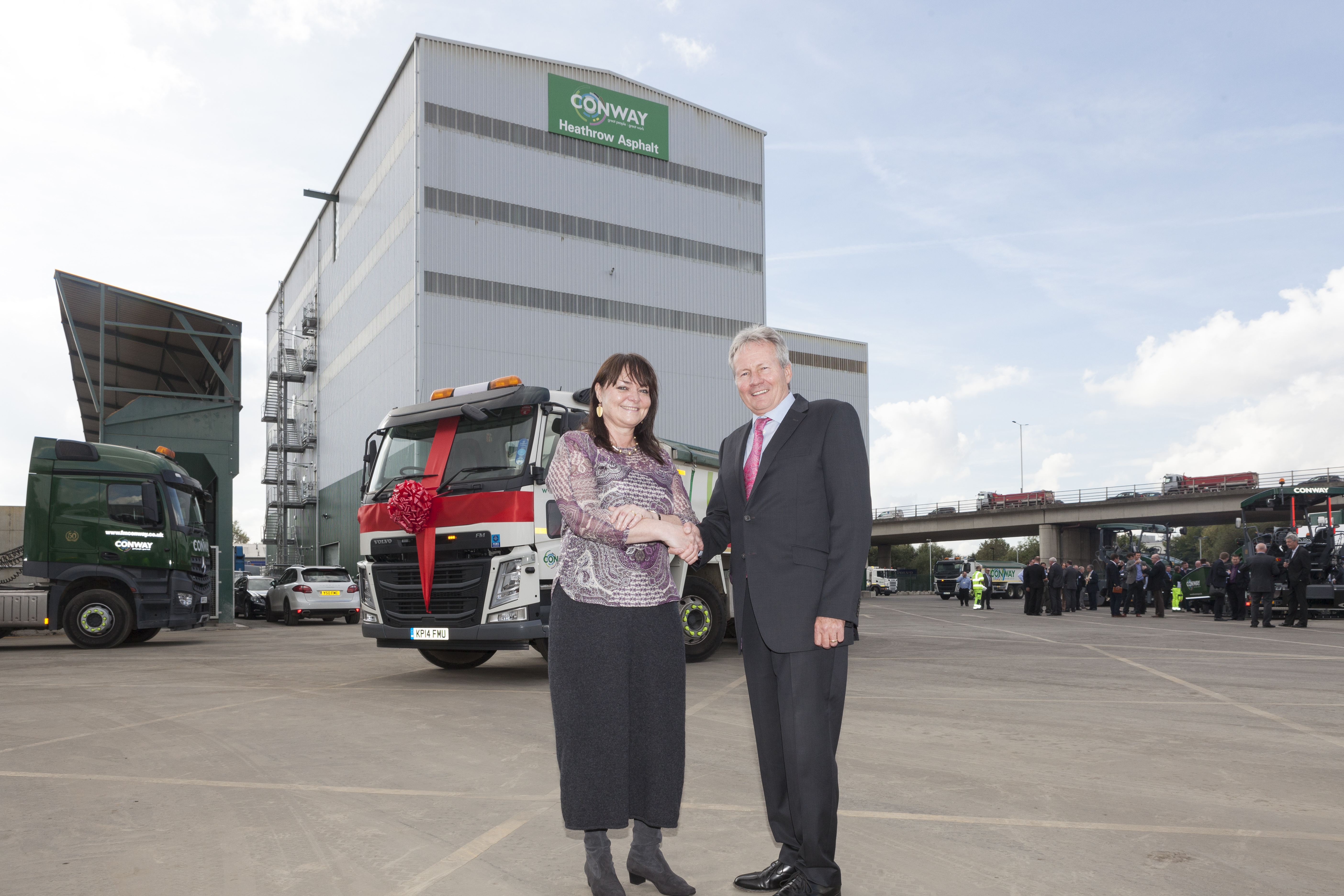Materials science and technology can only take us so far when it comes to recycling construction waste. to take it further, industry attitudes must change and standards must evolve.
Today, with the climate emergency, few would question why you would try to recycle and reuse construction waste. But 40 years ago when contractor FM Conway first started to do just that, the reaction was not quite the same. Chairman Michael Conway – son of Frank Conway who founded the business in 1961 – was undeterred and pushed on, creating an ethos within the business that will continue following his death earlier this year.
Recycled Type 1
“He started by offering recycled Type 1 material – it met specification but it looked different and many local authorities were sceptical about including it on their projects,” says
FM Conway managing director Andrew Hansen. “Even when I joined the business in 1998, when Michael had already been championing recycled material for nearly two decades, there was still resistance to it.
“Michael was extremely passionate about recycling though and was determined. I’d describe him as a pioneer for reuse of construction waste long before the carbon agenda started to drive change.”
Hansen says that, undeterred, Michael Conway bought a fleet of concrete lorries and started to offer concrete using recycled aggregate in 2000.
“We were using it in C10 or C20 mixes and we carried out extensive testing to prove that it met all the right specifications,” says Hansen.
We did not need to own quarries to keep us supplied with aggregates – roads were our quarries
Hansen describes a change that swept the sector towards the end of 2010 when local authorities started to see the environmental benefits of using recycled materials.
The use of recycled aggregate in the early stages was a catalyst for the progress of FM Conway’s approach to the circular economy. The business used the same method to drive up recycling rates in asphalt as it did with aggregates, with testing and analysis at its United Kingdom Accredited Services (UKAS) certified laboratory to demonstrate the science behind
the approach.
To support the development of asphalt recycling, FM Conway has invested in state-of-the-art asphalt plants, including two of the only six twin drum plants available nationally.

Michael Conway (pictured with Dana Skelley when she was director of asset management with Transport for London) has been described as a recycling pioneer
The twin drum asphalt plants can increase the quantity of recycled asphalt planings that can be incorporated into pavement materials, further unlocking the environmental benefits of using recycled materials. The recycling potential of the asphalt plants is supplemented by the company’s recycling facilities, its polymer modified bitumen terminal and testing at its UKAS certified laboratory to ensure robust quality assurance.
In a ground-breaking project on the M3, FM Conway and National Highways set a new standard for recycled materials with 70% in the lower layers and 50% in the surface course. The scheme achieved a 37% carbon saving which brings the trial close to National Highways’ net zero strategy target of a 40% to 50% reduction in carbon by 2030.
Away from trunk road routes, FM Conway has collaborated with Westminster City Council to design
and implement a surface mix containing 80% recycled materials.
Business benefits
The approach has delivered benefits for the business beyond the altruistic ones that drove Michael Conway to persist with his recycling ethos.
“Michael was adamant that we did not need to own quarries to keep us supplied with aggregates – roads were our quarries,” says Hansen.
But what the business did need was space to sort, store and reuse the materials it removed from its projects and the acquisition of a site in Dartford in 1999 was a milestone moment.
“At that point we were turning over £19M,” says Hansen. From 2008, FM Conway has invested heavily in its portfolio of seven asphalt plants, with Erith Asphalt Plant being commissioned in 2011 and Heathrow Asphalt Plant in 2014. Both these plants being instrumental in driving recycling capability and capacity. Today FM Conway’s turnover is £445M as a result of these carefully targeted acquisitions, market expansion and its innovative approach to recycling.
So, what will it take to drive up recycling rates further? According to Hansen, materials science and equipment technology will only drive incremental improvements. It is industry attitudes and standards that must evolve with technology and the carbon agenda.
Retaining value
“Retaining the value of recycled material in highway projects requires a different approach,” he explains.
“We need to core road pavements and consider alternative techniques such as profile planing the sites [to more accurately remove layers of material]. We can then provide a bespoke recycling strategy for each location.
“This will drive the efficient use of our finite resources and help keep these resources in circulation for longer, further unlocking the environmental benefits and upholding the circular economy. With the drive to reduce carbon, all stakeholders need to be open to new ideas and solutions to be able to meet the ambitious carbon reduction targets being set.”
The business has now proved that using recycled materials in road pavements does not mean quality has to be compromised. Through careful planning, testing and robust quality assurance, these materials can be used in a scalable and viable manner.
Michael Conway may no longer be here to see his dream realised. But it is clear he has created a business filled with people determined to fulfil his legacy and work collaboratively with its clients to deliver on the company’s recycling and carbon ambitions.
- Published in association with FM Conway
Like what you've read? To receive New Civil Engineer's daily and weekly newsletters click here.
 New Civil Engineer Civil engineering and construction news and jobs from New Civil Engineer
New Civil Engineer Civil engineering and construction news and jobs from New Civil Engineer
Have your say
or a new account to join the discussion.